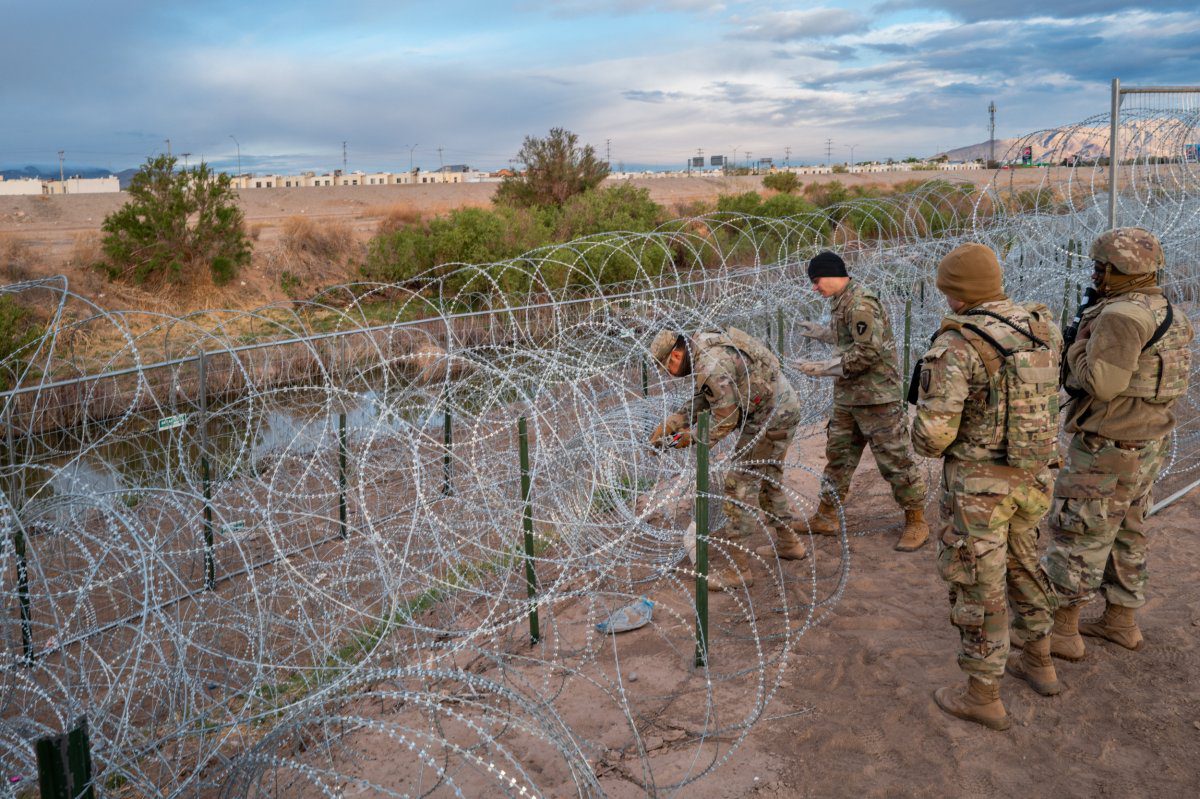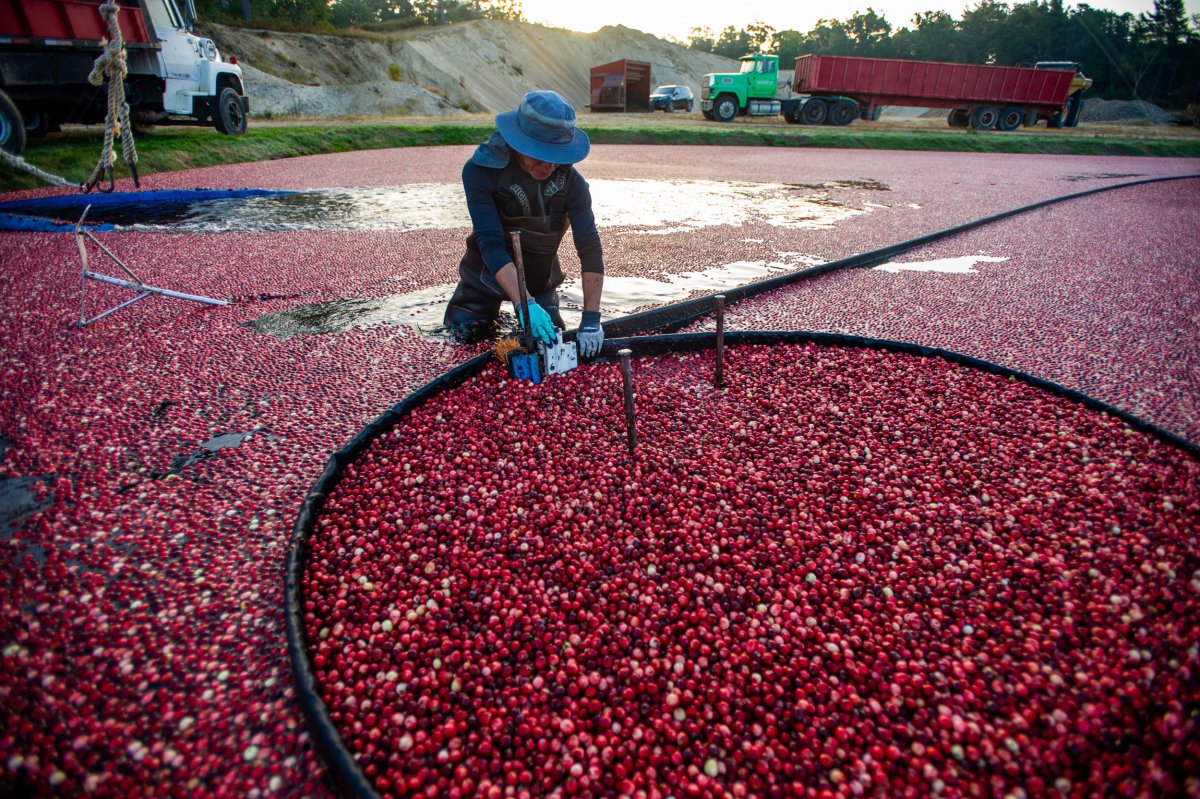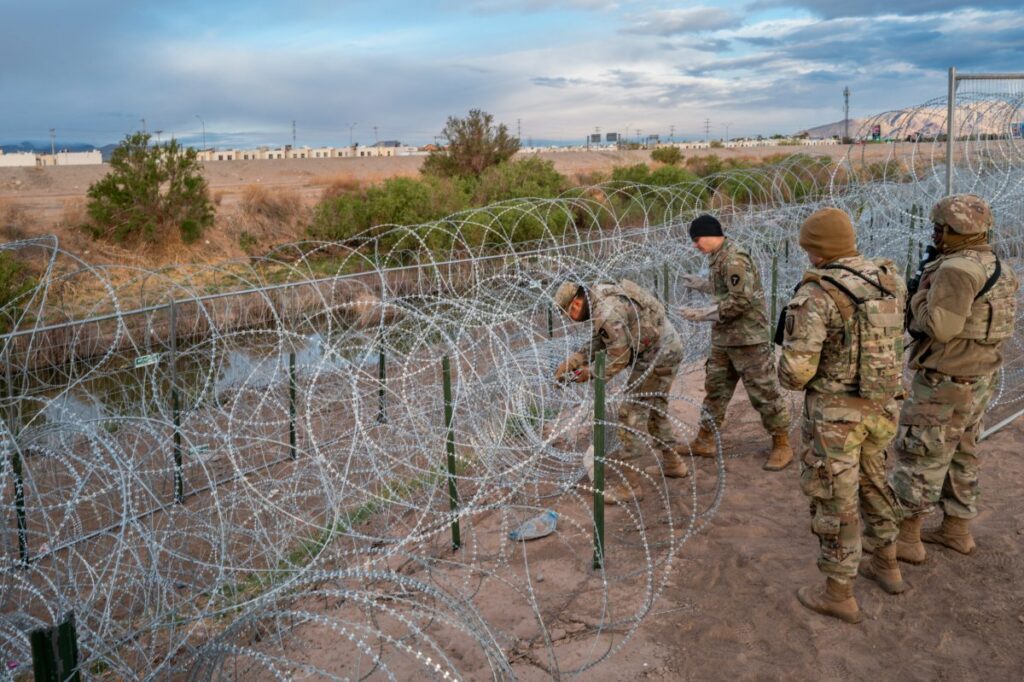Five out of 50 states have introduced anti-immigration laws over the past four years, with the number of bills surging by 357 percent since 2020.
The research, by the League of United Latin American Citizens, showed Texas introduced the highest number of bills—91—over the past four years, while Alaska, Maryland, Nebraska, Rhode Island and Vermont had zero.
The 74 bills which passed have had “real and devastating consequences”, the organization found, although some attempts at taking control of immigration from the federal government have been held up by the court system.
“Before 2020, there was not this kind of activity,” LULAC CEO Juan Proaño told Newsweek. “There was a shift in tone in regards to how Republicans were talking, and a lot of that came from outside the D.C. bubble.”
What anti-immigration bills have states introduced?
In total, 561 bills were put forward over the past four years, with an increasing number making it through state legislatures—just under 4 percent in 2020, compared to 14.6 percent in 2024.
The majority focused on border defense and enhancement, while others targeted migrants’ rights to work, to hold I.D., and to vote at the local level. All of these policy areas have come up in the national conversation around immigration in the run-up to the 2024 election, as anti-immigrant sentiment has grown.
The high number of bills enacted in Texas might not come as a huge surprise, with Governor Greg Abbott having been vocal about President Joe Biden’s immigration policies and Attorney General Ken Paxton pushing forward multiple court cases around the issue, despite a large, long-time Latino population.
“They feel like they have the run of the house,” Proaño explained. “So if they can get it passed in Texas, even if it’s on appeal, then it essentially gives them everything that they need to make it national.”
The Lone Star State’s attempts to take over policing the border, known as S.B. 4, was challenged in the courts and has not been implemented, but similar bills have been attempted in other states since.

Texas National Guard soldiers install border fencing layered with concertina wire near the Rio Grande river on April 02, 2024 in El Paso, Texas. Governor Greg Abbott has pushed for more state control of…
Texas National Guard soldiers install border fencing layered with concertina wire near the Rio Grande river on April 02, 2024 in El Paso, Texas. Governor Greg Abbott has pushed for more state control of the United States-Mexico border.
More
Brandon Bell/Getty Images
In Oklahoma earlier this year, a bill that would make it a criminal offense to be in the state without legal residency was challenged in a state court, but the judge said he would amend his decision if a different ruling was made at the U.S. Supreme Court.
That is because the federal government has the power to police the border and immigration, according to precedent, but states have become bolder in trying to challenge that, as Newsweek reported in July.
Migrants forced into ‘soft deportation’
LULAC believes that the state-level bills that are being enacted, such as the New Jersey Jobs Protection Act in 2022, are designed to push people out.
The bill argued that the presence of undocumented migrants within the state’s job market meant “fewer employment opportunities” for legal residents, as well as “an erosion of public respect for the rule of law in New Jersey”.
The Garden State enacted 51 anti-immigrant bills over four years, second place behind Texas, despite being a blue state overall and thousands of miles from the U.S.-Mexico border.
“The density or the amount that you see in some states goes back to the idea of soft deportation,” Proaño said. “We’re going to make it so difficult for a Latino to live in this state, that they are going to self-select and say ‘I’m going to move to California, I’m going to move to Iowa. I’m going to move to some place that I am welcome’.
“I really do believe that is part of their strategy – to make it as difficult, as cumbersome, as unnerving as it possibly can be, so that for Latinos that can, they will move.”

A farmhand corals cranberries towards the pump at the Mann Farm in Buzzards Bay, Massachusetts, on October 12, 2023. Many agricultural workers are immigrants on temporary visas or undocumented migrants. (Picture for illustrative purposes only)
A farmhand corals cranberries towards the pump at the Mann Farm in Buzzards Bay, Massachusetts, on October 12, 2023. Many agricultural workers are immigrants on temporary visas or undocumented migrants. (Picture for illustrative purposes only)
JOSEPH PREZIOSO/AFP via Getty Images
Five states introduced zero bills of this kind over the past four years—Alaska, Maryland, Nebraska, Rhode Island and Vermont—all with differing demographics. LULAC believes this is because these states realize the need for immigrants in their communities.
“Nebraska is a huge meat-packing state. A lot of our livestock is there, a lot of the meatpacking plants are there and guess who works in those meatpacking plants? Latinos. Migrants,” Proaño said. “So do they really want to scare off the Latino population?”
Much like Nebraska, the U.S. agricultural industry relies heavily on migrant workers, whether on temporary visas or undocumented. Experts have warned that former president Donald Trump’s proposals for mass deportation would have a devastating impact on the economy, because of this reliance.
LULAC said many Latino workers are also working jobs others are not—in construction, hospitality and health care—with Proaño describing them as “the engine” of the U.S. economy, with many set to fill the gap left by an aging native-born population.
The GOP has also promised strict vetting of migrants coming into the U.S., saying they will have to “love America” and meet strict criteria for work visas, while the platform also promises that American workers are prioritized.
The Democrats have held onto the Bipartisan Border Bill as their main policy area, while also saying that the system overall needs fixing to allow easier legal immigration.
Proaño said this is the question that remains for the migrant community as the election approaches: “Is tomorrow a promise to us, or isn’t tomorrow a promise for us?”
Do you have a story Newsweek should be covering? Do you have any questions about this story? Contact LiveNews@newsweek.com
Source link : http://www.bing.com/news/apiclick.aspx?ref=FexRss&aid=&tid=66ededdbcbbc413cad58f22b40d2e876&url=https%3A%2F%2Fwww.newsweek.com%2Fimmigration-policies-state-map-illegal-immigrants-border-1957199&c=17056531147250202170&mkt=en-us
Author :
Publish date : 2024-09-20 10:21:00
Copyright for syndicated content belongs to the linked Source.
